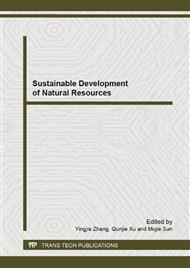p.2192
p.2196
p.2200
p.2206
p.2210
p.2214
p.2219
p.2223
p.2229
Reactive Power Optimization Based on CAGA Algorithm
Abstract:
Reactive power optimization is a typical high-dimensional, nonlinear, discontinuous problem. Traditional Genetic algorithm(GA) exists precocious phenomenon and is easy to be trapped in local minima. To overcome this shortcoming, this article will introduce cloud model into Adaptive Genetic Algorithm (AGA), adaptively adjust crossover and mutation probability according to the X-condition cloud generator to use the randomness and stable tendency of droplets in cloud model. The article proposes the cloud adaptive genetic algorithm(CAGA) ,according to the theory, which probability values have both stability and randomness, so, the algorithm have both rapidity and population diversity. Considering minimum network loss as the objective function, make the simulation in standard IEEE 14 node system. The results show that the improved CAGA can achieve a better global optimal solution compared with GA and AGA.
Info:
Periodical:
Pages:
2210-2213
Citation:
Online since:
December 2012
Authors:
Price:
Сopyright:
© 2013 Trans Tech Publications Ltd. All Rights Reserved
Share:
Citation:


